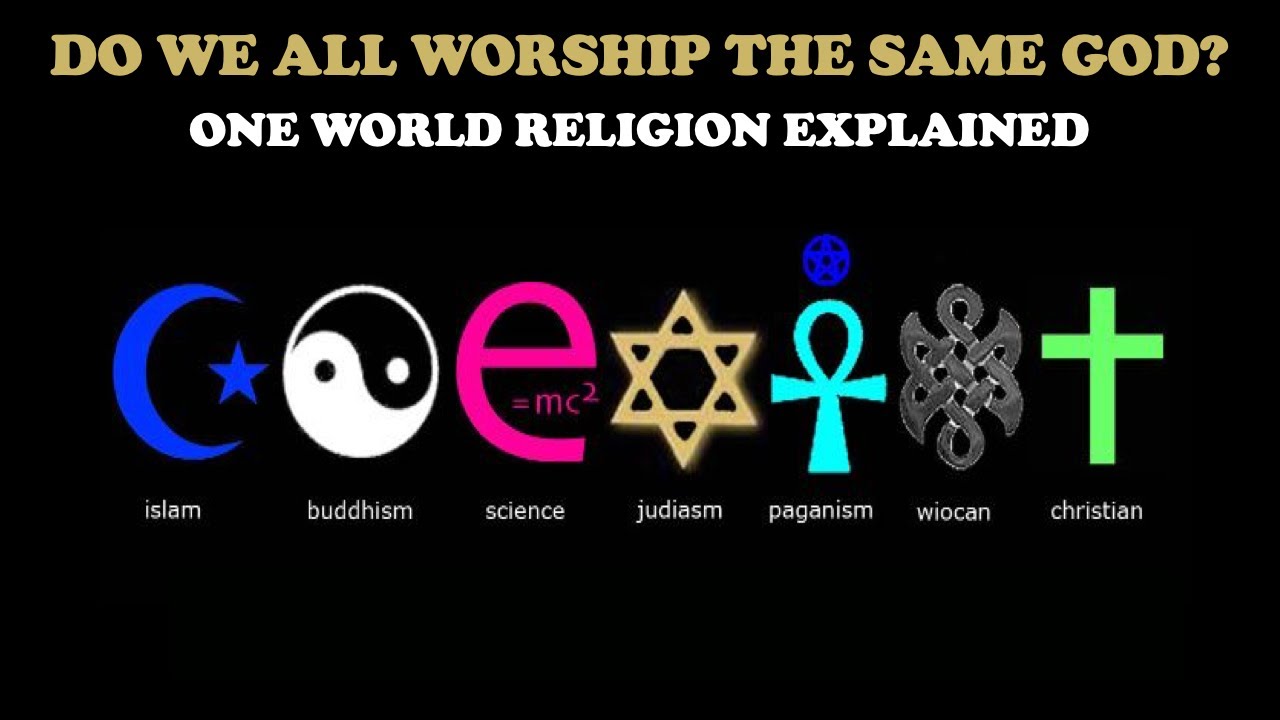Do we all worship the same God? This playful question invites intrigue and contemplation, often eliciting both fervent affirmations and vehement denials. This discussion takes us into the heart of interfaith dialogue and understanding, revealing profound insights imbued within Bahá’í teachings.
The Bahá’í Faith, founded in the 19th century by Bahá’u’lláh, breeds a unique perspective on the nature of God and the essence of worship across different faith traditions. Central to the Bahá’í doctrine is the belief that there is one God, transcendent yet immanent, whose essence cannot be encapsulated within any single religious framework. This is explicitly articulated in Bahá’í texts, which portray God as the Source of all creation, the Ultimate Reality, and the unifier of diverse beliefs.
Before delving deeper, consider the challenge that arises: if God is one, why are there so many disparate religions, each claiming unique truths? It can be argued that this plurality reflects humanity’s cultural variety and spiritual needs rather than any inherent contradiction in God’s essence. Bahá’ís embrace this plurality, positing that all major world religions are interconnected, forming a tapestry of divine revelation that unfolds progressively through time.
At the core of Bahá’í teaching is the concept of “Progressive Revelation.” According to this tenet, God has sent a succession of divine educators—known as Manifestations of God—throughout history. These Manifestations, including Moses, Jesus, Muhammad, and ultimately Bahá’u’lláh, each brought teachings that suited the needs of their respective societies while enlightening humankind about the same foundational truths. This perspective renders each religion a chapter in the ongoing narrative of humanity’s spiritual evolution.
This notion of Progressive Revelation highlights a crucial Bahá’í assertion: that the differences among religions are often more superficial than profound. The moral principles advocated by these spiritual leaders—justice, compassion, and unity—are consistent, urging adherents to see beyond dogma and ritual and towards a shared ethical framework. In this light, the Bahá’í Faith advocates for a collective understanding of worship that is rooted not in exclusivity, but in inclusivity.
One prominent Bahá’í teaching is the idea that all human beings are intrinsically connected. The oneness of humanity is a core principle, promoting not merely tolerance, but an active embrace of diversity. According to Bahá’í belief, every individual is a reflection of God’s attributes, thereby deserving of respect and honor irrespective of religious affiliation. This dynamic fosters a spirit of kinship, encouraging dialogue rather than division, and posits that true worship lies in actions that uplift the collective human experience.
Bahá’ís challenge individuals to engage in meaningful interfaith conversations. By encouraging personal connections and sharing stories, adherents can demystify perceived differences and reinforce the unity at the heart of worship. This call to dialogue positions Bahá’í followers not as arbiters of truth, but as learners eager to explore the richness embedded in diverse spiritual traditions.
Moreover, Bahá’í teachings caution against fanaticism and dogmatism. The belief that one’s own faith is superior to others can cultivate discord and division among humanity. In contrast, Bahá’ís advocate for an open-hearted discernment that invites individuals to appreciate the myriad ways in which diverse communities express their reverence for God. By acknowledging the validity of each path towards the Divine, Bahá’ís enrich their own understanding of the world.
In practical terms, Bahá’í teachings encourage interfaith collaboration through community service and joint humanitarian efforts. By working collectively for social justice, educational advancement, and environmental sustainability, faith communities can coalesce around common goals that elevate the human condition. Such partnerships exemplify the worship of God in action, transcending theological debates and focusing on shared human dignity.
In conclusion, from a Bahá’í perspective, the question of whether we all worship the same God can be affirmatively answered through the lens of unity and diversity. While the manifestations of God have delivered varied messages across epochs and cultures, the essence of their teachings converges towards principles that foster coexistence and mutual respect. In an increasingly polarized world, Bahá’í teachings invite humanity to recognize the underlying oneness that connects all spiritual paths, advocating for a future illuminated by collective understanding and compassion.
The challenge remains: as denizens of this world, are we prepared to embrace the transformative potential of interfaith dialogue? In recognizing that our aspirations may be diverse, yet our quest for divinity is fundamentally shared, we can foster not only personal enlightenment but pave the way for a harmonious global community. The quest for understanding God—as encapsulated by diverse traditions—invites us not towards competition but collaboration, recognizing that the essence of worship transcends boundaries, enriching the human experience in the process.
